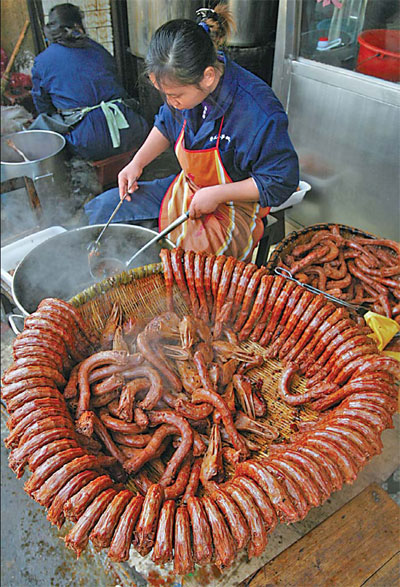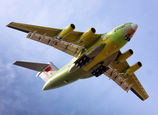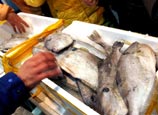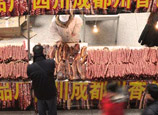
 |
| A cook prepares duck necks at a food stand on Wuhan's Jingwu Road, which was demolished for a multifunctional residential community. (China Daily) |
The street is no more, but its name remains on the signature delicacy that became a nationally celebrated dish. And, the competition is still just as fierce. Wang Ru reports in Wuhan.
Wu Jixue has kept the local newspaper from Jan 22, 2011 - the day Jingwu Road in Hubei province's provincial capital Wuhan was demolished, along with its signature rows of spicy duck neck stores. The 50-year-old is among the tycoons who made a fortune on Jingwu. His family-run business has grown from its first shop in 1995 into an empire of 12 chain stores, a factory with about 1,000 employees and 150 million yuan ($24 million) in sales.
But while his business survived the demolition, Wu says he feels like he has lost a child. Jingwu was where his business was born, and he helped the road's spicy duck neck industry develop from a jumble of ramshackle sheds into more organized food stalls.
There are many stories about the dish's origins. The most widespread says a local man named Tang Lajiu created it on Jingwu in 1993.
Vendors usually discarded the duck necks back then.
Tang and his brother took inspiration from Sichuan's spicy cuisine and stewed them with herbs and spices.
The lines in front of Tang's shop grew and started to include celebrities.
Wu, who worked as a taxi driver before opening a grocery shop, noticed the growing popularity and opened a duck neck stall outside his store on Jingwu's southern end.
The location helped his business boom. The stall ran 24 hours a day, and Wu decided to close his grocery and sell the necks full time.
Most customers were passengers and bus drivers from a nearby bus station and late-night patrons of a neighboring nightclub.

















 China's weekly story (2013.01.21-01.27)
China's weekly story (2013.01.21-01.27)


![]()
